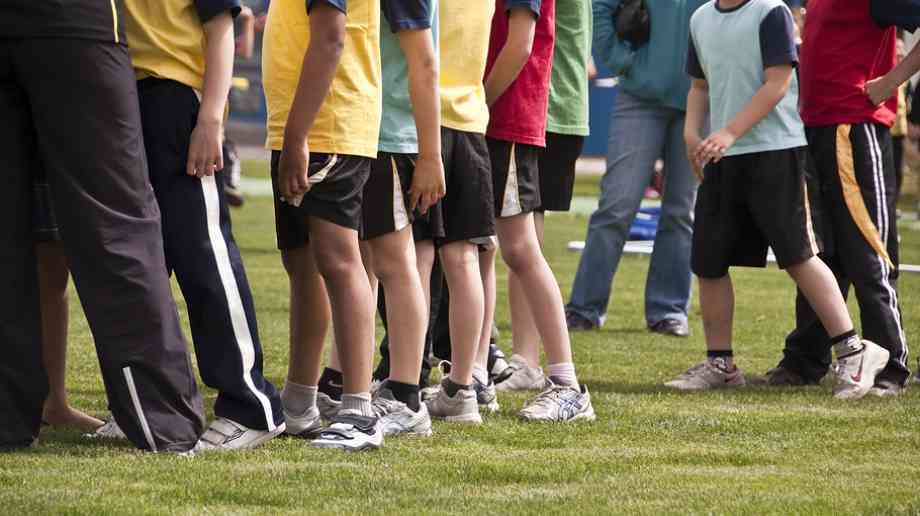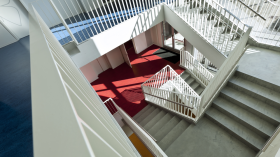
Securing improvements in PE and sport
The DfE has confirmed that it will continue to fund the PE and Sport Premium next year, with a £320 million investment, and that any money leftover from the grant this year or last can be used by until 31 July 2022. We look what the grant is trying to achieve and how it should be used
The PE and Sport Premium, which has been confirmed for the next academic year with the value of £320 million, is designed to encourage children to play more sport, increase their social skills, and improve their physical activity after lockdown. Schools will also be able to improve the quality of their teaching and make longer-term, sustainable changes to their lessons.
As a result of the coronavirus (COVID-19) outbreak, ring-fencing arrangements were relaxed in the 2019 to 2020 academic year to allow any unspent grant to be carried forward into the 2020 to 2021 academic year. In June 2021, the Education Secretary announced a further relaxation of ring-fencing arrangements for the PE and sport premium. This will allow any unspent grant to be carried forward into the 2021 to 2022 academic year. Any under-spends carried forward from the 2019 to 2020 academic year, and the 2020 to 2021 academic year, will need to be spent in full by 31 July 2022. Schools should factor this into PE and sport premium spending plans.
Why physical activity is important
A positive experience of sport and physical activity at a young age can build a lifetime habit of participation and is central to meeting the government’s ambitions for a world-class education system.
Physical activity has numerous benefits for children and young people’s physical health, as well as their mental wellbeing as it increases self-esteem and emotional wellbeing, as well as lowering anxiety and depression. What's more, children who are physically active are happier, more resilient and more trusting of their peers. Ensuring that pupils have access to sufficient daily activity can also have wider benefits for pupils and schools, improving behaviour as well as enhancing academic achievement.
The School Sport and Activity Action Plan, which is due to be updated this year, sets out government’s commitment to ensuring that children and young people have access to at least 60 minutes of sport and physical activity per day, with a recommendation of 30 minutes of this delivered during the school day (in line with the Chief Medical Officers guidelines which recommend an average of at least 60 minutes per day across the week).
The PE and sport premium can help primary schools to achieve this aim, providing primary schools with £320m of government funding to make additional and sustainable improvements to the quality of the PE, physical activity and sport offered through their core budgets. It is allocated directly to schools so they have the flexibility to use it in the way that works best for their pupils. The PE and sport premium survey highlighted the significant impact which PE and Sport has had in many primary schools across England.
Commenting on the confirmation of the grant for next year, Tim Hollingsworth, CEO of Sport England, said: "We welcome the confirmation of further PE and Sport Premium funding for the next academic year. Their time at school is a huge part of how children can engage with the activity they enjoy, and which can also support them to focus and learn. After a year of significant disruption to children’s activity levels and schooling, a high-quality PE and sport offer, boosting their health and wellbeing, has never been more important."
Sue Wilkinson MBE, CEO of Association for Physical Education, said: "The Association for Physical Education is delighted that the Primary PE and Sport premium will continue for an additional year, and that schools will be able to carry over any underspend. This will enable schools to plan for sustainable solutions to ensure that all their children will be able to access high quality PE and physical activity. Now more than ever, it is critical that we place PE front and centre in schools, to prioritise all children’s physical, emotional, social and cognitive wellbeing and development – and we believe schools will be a key driver in achieving the best outcomes for all.
Ali Oliver MBE, CEO of the Youth Sport Trust said: "The confirmation of the Primary PE and Sport Premium today is such welcome news. The importance of daily physical activity, weekly physical education and regular opportunities for all children to enjoy sport has never been more important to young people’s wellbeing, education and development. This investment and the opportunities it will support should be recognised as an important contributor to our national recovery. Not only will it help accelerate young people’s physical recovery but it should also bring fun, enjoyment and reconnection, as well as supporting their re-engagement in the classroom."
How to use the PE and sport premium
Schools must use the funding to make additional and sustainable improvements to the quality of PE, physical activity and sport they provide.
This means that schools should use the PE and sport premium to develop or add to the PE, physical activity and sport that your school provides and build capacity and capability within the school to ensure that improvements made now will benefit pupils joining the school in future years.
Schools should use the PE and sport premium to improve engagement of all pupils in regular physical activity, for example by providing targeted activities or support to involve and encourage the least active children, and encouraging active play during break times and lunchtimes. They can also establish, extend or fund attendance of school sport clubs and activities and holiday clubs, or broaden the variety offered. Schools can also improve engagement by adopting an active mile initiative, and by raising attainment in primary school swimming - Every child should leave primary school able to swim.
The premium should be used to raise the profile of PE and sport as a tool for whole-school improvement, for example by actively encouraging pupils to take on leadership or volunteer roles that support the delivery of sport and physical activity within the school (such as ‘sport leader’ or peer-mentoring schemes). They can also raise the profile by embedding physical activity into the school day through encouraging active travel to and from school, active break times and holding active lessons and teaching.
The funding should also be used to increase the confidence, knowledge and skills of a staff teaching sport and PE. This can be done by providing staff with professional development, mentoring, appropriate training and resources to help them teach PE and sport more effectively to all pupils, and embed physical activity across your school. They can also hire qualified sports coaches and PE specialists to work alongside teachers to enhance or extend current opportunities offered to pupils.
The premium should also be used to broaden experience of a range of sports and activities offered to all pupils, for example by introducing a new range of sports and physical activities (such as dance, yoga or fitness sessions) to encourage more pupils to take up sport and physical activities. It can also be broadened by partnering with other schools to run sports and physical activities and clubs, and providing more and broadening the variety of extra-curricular activities after school, delivered by the school or other local sports organisations.
Increasing participation in competitive sport should also be an aim for using the grant, for example by increasing and actively encouraging pupils’ participation in the School Games, and organising, coordinating or entering more sport competitions or tournaments within the school or across the local area, including those run by sporting organisations.
Latest News
28/10/2025 - 09:29
Timeline set for removal of Reinforced Autoclaved Aerated Concrete
27/10/2025 - 14:37
The charter aims to make food education for children and young people a priority and act as a catalyst for change, improving provision in Bristol and beyond.
27/10/2025 - 09:30
Both unions announce formal support of NAHT’s legal action against Ofsted and its proposed new framework.
27/10/2025 - 09:14
A new Child of the North (CotN) report warns that the special educational needs and disabilities (SEND) system faces ‘a worsening crisis’.
24/10/2025 - 10:29
The government has updated its guidance on school uniforms, calling for schools to start limiting branded uniform and PE Kit items ahead of the Children’s Wellbeing & Schools Bill.







